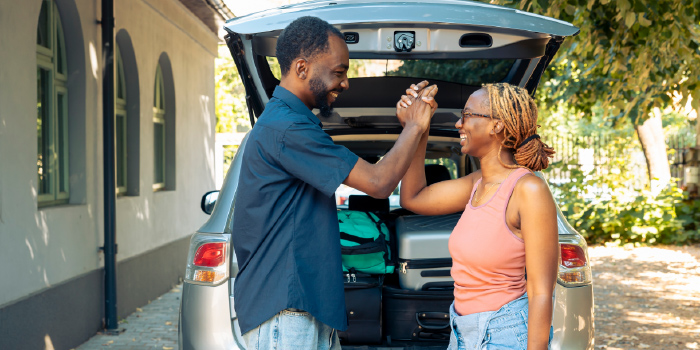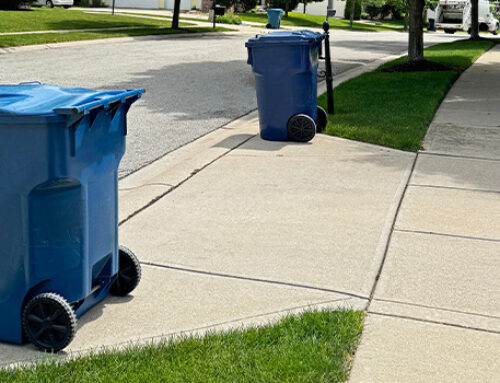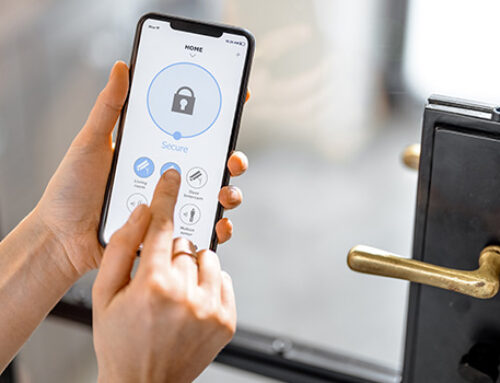Vacation homes are the perfect escape. They offer all the comforts of home with the excitement and novelty of a new environment. Whether nestled in the mountains, perched by the beach, or tucked away in the countryside, these retreats offer their owners and visitors the perfect way to relax, unwind, and “get away from it all” while still having daily necessities close at hand.
Still, owning a vacation home isn’t always as easy as the vacation itself may be. Vacation home ownership introduces a variety of challenges that are exacerbated by the fact that you don’t live in the home full-time. This is especially true when it comes to safety and security, as vacation homes can become a target for maintenance issues, intruders, or other concerns.
Luckily, a little forethought can help you keep your vacation home safe, even when you can’t be there. Read on for a few tips about how to create the ultimate destination for a worry-free getaway. Plus, as a bonus, we’ve included some tips to help you secure your own home while you travel.
Setting up a safe vacation home.
Secure entry points
Just as you would with your own home, you want to make sure all entry points to your vacation home are secure. At the most basic level, this means installing sturdy locks on doors and windows. Depending on where your vacation home is located, you may want to add deadbolts or even security bars for extra protection. If you’re going to be away for an extended period of time, you can also reinforce sliding doors with bars or dowels to prevent them from being forced open.
Whatever security measures you enable on your property, be sure to regularly inspect them and repair any damage quickly.
Install a security system.
A comprehensive security system can help provide peace of mind while you’re away. Surveillance cameras, motion sensors, and door and window sensors can give you a clear picture (literally) of who is coming and going into your home. Many modern systems allow for remote monitoring, and you can set up alerts to keep you updated on all activity. Make sure you display signs or stickers indicating that you use security system; this can help deter potential burglars who sometimes view vacation homes as easy targets.
Light up the property.
Adequate lighting is a simple yet effective way to make your vacation home safer. Motion-activated lights around the exterior of the home will illuminate dark areas and deter trespassers. Use timers or “smart” lighting systems to turn on lights nightly, which will make it look like someone is in the home, even if it’s unoccupied.
Additionally, make sure your outside pathways and entryways are well lit, as this will reduce the risk of trips and falls.
Maintain the landscape.
While maintaining the landscape at a vacation home can be a burden, the payoff is well worth it. Overgrown bushes or trees can signal that the home is unoccupied, or they can create hiding spots for intruders and pests. Debris and obstacles on pathways can create tripping hazards. Keeping everything trimmed and neat will help eliminate potential injury, and signal that the property is well cared for.
You can also use your landscaping to actively deter intruders. Thick or thorny bushes placed in front of windows or around the edges of the property will keep unwanted “visitors” away, as will gravel beds (which are very noisy when walked on).
Take precautions for fire safety.
Install smoke detectors and carbon monoxide detectors throughout your vacation home, and test these regularly to make sure they are functioning properly. Keep fire extinguishers in key areas, including the kitchen, the garage, and near any fireplaces or fire pits. Create and learn a fire escape plan that you practice with your family and share with any guests.
Secure valuables.
Don’t make your vacation home a valuable target. Safeguard your valuables by storing them in a secure location. Keep expensive items, like large electronics or expensive jewelry, out of plain sight whenever possible. If you must keep valuables at your vacation home while you aren’t there, consider engraving or marking them in some way, so they will be easier to identify if they are ever stolen.
Set up remote monitoring.
Smart devices like security cameras and smart locks can help you keep tabs on your property while you can’t be there in person. You can check on things in real time and get alerts if any suspicious or unwanted activity happens, including weather events.
Establish emergency contacts.
A list of emergency contacts will be an invaluable resource as you try to manage your vacation home from afar. Create a list of local emergency services, friendly neighbors, HOA property management personnel, cleaners, landscapers, contractors, and anyone else who might be able to help you in case of an emergency or dire need. Make sure you are able to give them clear instructions on how to access the property, including any relevant security codes.
Perform regular inspections and maintenance.
As with any home, regular inspections and routine maintenance can go a long way in preventing safety hazards or other issues. Hire quality, trusted professionals to inspect electrical, plumbing, and HVAC systems annually (or as often as needed). Test alarms regularly, replace batteries in automatic locks and sensors when needed, and keep all monitoring apps updated.
Educate guests.
If you plan on renting your vacation home to strangers, take some time to create a safety guide that helps them feel secure during their stay. Point out safety features and provide instructions on how to operate security systems, appliances, and emergency equipment. Take care to highlight any potential risks, such as steep staircases or surfaces that can get slippery when wet. Ask your guests to report any safety concerns promptly so that you can address them quickly.
Additionally, if guests are renting your property, set up unique codes for each guest, and only activate those codes during the dates of the guest’s stay.
Bonus: Keeping your own home safe while you’re away.
When you are away from your own home, you want to make sure everything stays safe. Here are some quick ways to help you do that.
- Lock doors and windows before leaving.
- Set up at least one “smart” light that can be turned on remotely or automatically at random times, to give the appearance that someone is home.
- Ask a neighbor to pick up any packages that are delivered to your front door, since a pile of boxes on your porch sends a clear signal that no one is home.
- Install a security system. Even one camera in front of your house may be enough to deter intruders.
- Let your neighbors know that you’ll be out of town, and ask them to keep an eye on things. Leave a key with a trusted neighbor or friend.
- Use social media cautiously, as potential burglars will learn that your home is vacant if they see you posting while on vacation.
- Consider turning off your home’s water supply while you are out of town, to avoid potential flooding.
A vacation should be a worry-free time for relaxation; not a time to deal with safety issues! Whether you are concerned about keeping your vacation home safe, or about securing your own home while you’re out of town, these tips can help you stay safe and stress-free during your next trip. Happy travels!







